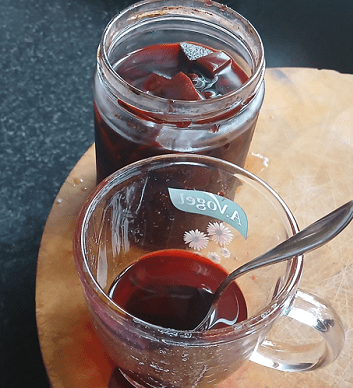Seasonal Foods for Winter: Supporting Health and Brain Function for ADHD
Changing temperatures in winter offers a chance to nourish the body with seasonal, nutrient-rich foods. The variety can boost overall health, the immune system, and brain function. For individuals with ADHD, diet plays a vital role in managing symptoms such as hyperactivity, inability to complete tasks, and issues with impulsivity. Here are some winter foods that support health, brain function, and focus for teenagers with ADHD.
Root Vegetables: A Steady Energy Source
Root vegetables like carrots, parsnips, turnips, swede, and sweet potatoes thrive in winter. They provide slow-releasing carbohydrates for balanced and sustained energy. These carb sources are combined with natural fibres to help maintain healthy blood sugar levels. Stable blood sugar is essential for focus and mood regulation.
Roasting root vegetables enhances their natural sweetness. Pair them with a source of healthy fat for better absorption of nutrients. A pinch of Irish sea salt brings out the flavour as well as herbs. “Rosemary for Remembrance’ is mentioned in Shakespeare’s Hamlet. Herbs add wonderful flavours and also added health benefits. Rosemary may improve memory, focus, and mental clarity. Studies suggest that compounds in rosemary enhance cognitive function and protect against neurodegenerative diseases. Its aroma alone may stimulate brain activity.
Hearty Stews and Soups
Winter is the season for rich, slow-cooked meats like beef, pork, and lamb. Gently slow cooking allows the release of collagen, which supports gut and muscle health. Sea vegetables or seaweed harvested and dried in Ireland also boosts iodine intake. In addition, they are a wonderful source of other trace minerals essential for health.

Organic Purple Broccoli
Leafy Greens: A Brain-Boosting Powerhouse
Kale, spinach, and Swiss chard grow well in colder months. They are rich in magnesium and folate. Magnesium helps calm the nervous system, supporting emotional regulation. Folate plays a role in brain development and function.
Add leafy greens to soups, stir-fries, or smoothies. This ensures an easy way to incorporate them daily. Choose organic or try growing your own. There’s less competition from caterpillars in the winter months.

Organic Chard
Citrus Fruits: A Vitamin C Boost
Winter is peak season for oranges, grapefruits, and clementines. These fruits are rich in vitamin C and antioxidants. Vitamin C supports the immune system and helps reduce inflammation. For ADHD, antioxidants may protect brain cells from oxidative stress.
Snack on citrus fruits or use them in salads and dressings for variety. Add a squeeze of lemon juice or fresh orange juice to warm water in the morning.
Nuts and Seeds: Healthy Fats for Focus
Walnuts, flaxseeds, and chia seeds are excellent sources of omega-3 fatty acids. These fats are critical for brain health. Studies link omega-3s to improved focus and reduced hyperactivity in ADHD.
Sprinkle ground or milled seeds on yogurt or add them to baked goods. Walnuts make a great snack on their own or in lunchboxes.
Fermented Foods: Gut Health Matters
Winter is an ideal time to enjoy fermented foods like kimchi, sauerkraut, and kefir. These foods support gut health, which impacts brain function. A healthy gut improves mood and cognitive performance. Kvass is a fermented drink made from beetroot and salty brine.

Fermented Beetroot Kvass
Include a small portion of fermented foods with meals to support digestion and probiotic diversity.
Stay Hydrated
Winter may reduce the feeling of thirst, but hydration remains crucial. Proper hydration improves energy levels and concentration. Avoid no added sugar drinks, which could contain artificial sweeteners linked to poor gut health. Real fruit based cordials have the benefit of natural antioxidants and phytonutrients. Encourage water, herbal teas, soups, or warm bone broths to stay hydrated.
Incorporating seasonal winter foods can improve health and brain support for ADHD. Small, consistent changes make a big difference. By eating seasonally, you nourish your body and mind effectively.


0 Comments